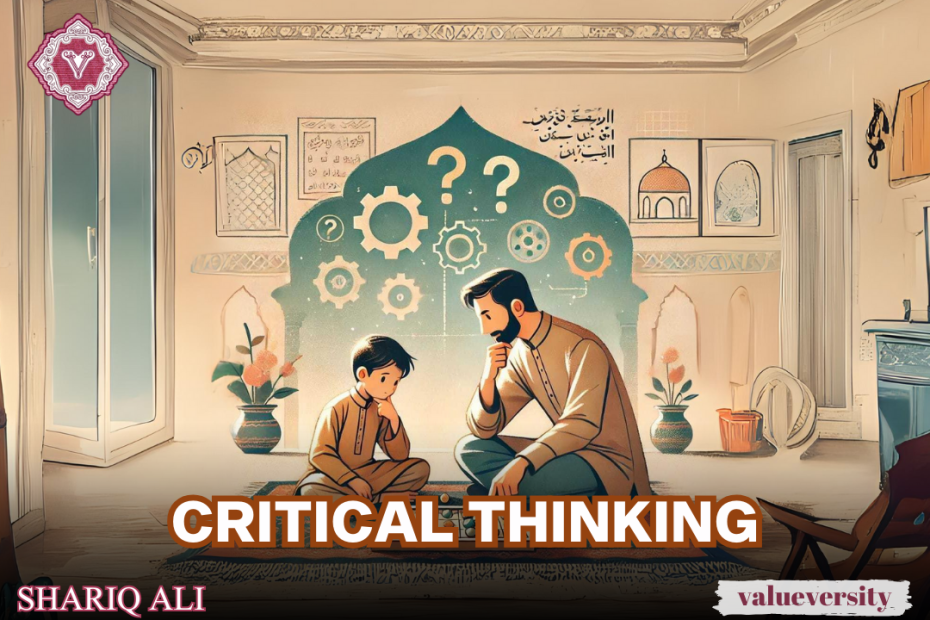Critical Thinking
Thought-Provoking Essay
Critical thinking plays an immensely helpful role in solving life’s problems. It involves careful examination and analysis of information. Whether the information comes from our observations, experiences, or interactions, the key point is that instead of accepting it at face value, we should be able to critically assess it and raise relevant and appropriate questions. Fields like science, mathematics, history, economics, and philosophy could not have sustained their existence without critical thinking. For any society’s progress, it is crucial for its citizens to possess such thinking.
Whether you are a parent or a teacher, it is your responsibility to impart critical thinking skills to your children and students. Children often start their questions with “why” based on their observations. By beginning the answer to each of these questions with “What do you think?”, we can plant the seed of critical thinking in their minds. Forming personal opinions about each observation is immensely helpful in practical life. Comparing observations or finding contrasts is not only interesting but also thought-provoking.
For example, if a child is given an apple and an orange and asked to identify what is similar and what is different between the two, this activity will greatly aid in broadening their mental horizons. When children listen to stories, they observe the characters, settings, the basic plot of the story, and minor details, and comparing these with other stories they have heard further expands their observations. If a child is asked to retell the story in their own words and then questioned about aspects that were not explicitly mentioned in the story, it will compel their mind to think critically.
If they are then asked to share their personal opinions about the story and its characters, they will develop critical thinking through expressing their individual perspectives. They might compare the story to their own life experiences or attempt to apply old knowledge in new ways. Working with your children and students to solve a problem or compare different situations, striving for the best possible outcome, will not only awaken critical thinking in them but also in yourself.
Stories that lack a definite ending or have multiple possible conclusions positively impact the creative abilities of the reader. The first person in human history to highlight the importance of critical thinking was Socrates. His method was that of wise questioning. His questions led the thinking mind in various directions, and then it had to walk those paths to find answers for itself. We can also use this method to teach critical thinking to our students and children.
The intellectual analysis of a conflict awakens critical thinking. The first step is to recognize the conflict and clearly define it, which, in philosophical terms, we call a “premise”—the narrative that we are to discuss. Then, we honestly consider both sides of the conflict. We carefully study the arguments on both perspectives, and without any bias or external pressure, we fairly examine the narrative and the counter-narrative. During the debate, we ensure that the information provided is reliable. We ask ourselves if we can identify the source of the information. Is the source credible? Does it have expertise on the subject? Do all experts on the subject share a common view?
One thing that is crucial for critical thinking is our ability to distinguish between opinions, judgment, and facts. It is common in life for many people to present opinions and personal judgment as facts. And it is through critical thinking that we can resist external pressures and move towards making correct decisions in our lives.
Take care of yourself.
Shariq Ali
Valueversity
